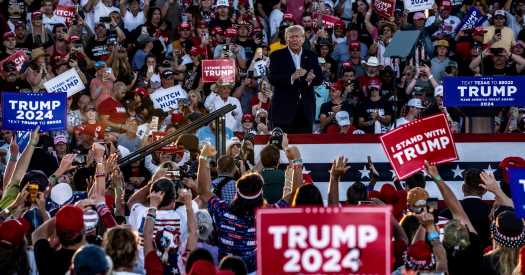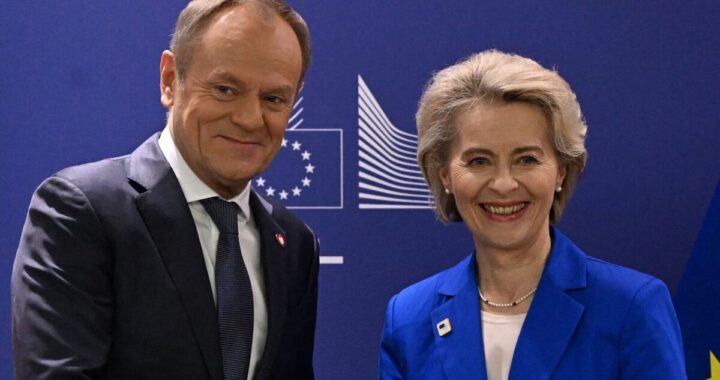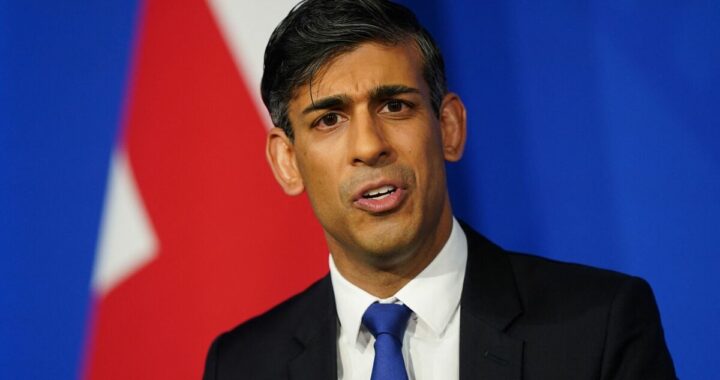Opinion | This Is Why Trump Lies Like There’s No Tomorrow
13 min read
Donald Trump can lay claim to the title of most prodigious liar in the history of the presidency. This challenges commonplace beliefs about the American political system. How could such a deceitful and duplicitous figure win the White House in the first place and then retain the loyalty of so many voters after his endless lies were exposed?
George Edwards, a political scientist at Texas A&M and a retired editor of Presidential Studies Quarterly, states the case bluntly: “Donald Trump tells more untruths than any previous president.” What’s more, “There is no one that is a close second.”
Trump’s deceptions have been explored from multiple vantage points. Let’s take a look at one line of analysis.
In 2008, Kang Lee, a developmental psychologist at the University of Toronto, published “Lying in the Name of the Collective Good” along with three colleagues:
Lying in the name of the collective good occurs commonly. Such lies are frequently told in business, politics, sports, and many other areas of human life. These lies are so common that they have acquired a specific name, the “blue lie” — purportedly originating from cases where police officers made false statements to protect the police force or to ensure the success of the government’s legal case against an accused.
How does that relate to the willingness of Republican and conservative voters to tolerate Trump’s lies — not just to tolerate them, but to cast votes for him again and again?
In a 2017, a Scientific American article building on Lee’s research, “How the Science of ‘Blue Lies’ May Explain Trump’s Support,” by Jeremy Adam Smith argues that Lee’s work
highlights a difficult truth about our species: we are intensely social creatures, but we are prone to divide ourselves into competitive groups, largely for the purpose of allocating resources. People can be prosocial — compassionate, empathetic, generous, honest — in their group and aggressively antisocial toward out-groups. When we divide people into groups, we open the door to competition, dehumanization, violence — and socially sanctioned deceit.
If we see Trump’s lies, Smith continued, “not as failures of character but rather as weapons of war, then we can come to see why his supporters might view him as an effective leader. From this perspective, lying is a feature, not a bug, of Trump’s campaign and presidency.”
Lee’s insights provide a partial explanation for the loyalty-to-Trump phenomenon, but gaining an understanding of Trump’s intractable mendacity requires multiple approaches.
The deference — or obeisance — of so many seemingly well-informed Republican leaders and millions of Republican voters to Donald Trump’s palpably false claims — the most egregious and damaging of which is the claim the 2020 election was stolen from him — raises an intriguing question: How can this immense delusion persist when survival pressures would seem to foster growing percentages of men and women capable of making discerning, accurate judgments?
In their March 10 paper, “The Cognitive Foundations of Ideological Orthodoxy: Threat Avoidance, Ingroup Mobilization and Signaling,” Antoine Marie and Michael Bang Petersen, political scientists at Aarhus University in Denmark, pose the question this way:
Navigating the world and solving problems would seem, by default, to be best done with beliefs that fulfill the epistemic goal of faithfully portraying how things are. Prima facie, one would thus expect selection to favor belief formation systems that prioritize accuracy and motivations to flexibly correct those beliefs in the face of compelling evidence and arguments, including in the domain of ideological beliefs.
How, in this context, do powerful “orthodox mind-sets” emerge, the authors ask, mind-sets that restrict free thinking, armed with a “disproportionate righteousness with which they try to protect cherished narratives.”
Marie and Peterson argue that these “orthodox mind-sets” may derive from three main cognitive foundations:
First, oversensitive dispositions to detect threat, from human outgroups in particular. Second, motivations to try to mobilize in-group members for cooperative benefits and against rival groups, by using moral talk emphasizing collective benefits. Third, (unconscious) attempts to signal personal devotion to accrue prestige within the in-group.
The prevalence of orthodox mind-sets in some realms of our political system is difficult to comprehend for those who are not caught up in it.
In his June 23 article, “Far Right Pushes a Through-the-Looking-Glass Narrative on Jan. 6,” my Times colleague Robert Draper captures how deeply entrenched conspiracy thinking has become in some quarters.
“A far-right ecosystem of true believers has embraced ‘J6’ as the animating force of their lives,” Draper writes. For these true believers, along with a faction of House Republicans, “Jan. 6 was an elaborate setup to entrap peaceful Trump supporters, followed by a continuing Biden administration campaign to imprison and torment innocent conservatives.”
Trump, over the past two years, has become “even more extreme, his tone more confrontational, his accounts less tethered to reality,” according to The Washington Post:
Now, as Trump seeks to return to the White House, he speaks of Jan. 6 as “a beautiful day.” He says there was no reason for police to shoot the rioter attempting to break into the House chamber, and he denies there was any danger to his vice-president, Mike Pence, who was hiding from a pro-Trump mob that was chanting for him to be hanged.
Another way to look at the issue of Trump’s deceptions is through his eyes.
In the chapter “Truth” in “The Strange Case of Donald J. Trump: A Psychological Reckoning,” Dan P. McAdams, a professor of psychology at Northwestern, has his own explanation of “why Donald Trump lies more than any other public official in the United States today, and why his supporters, nonetheless, put up with his lies.”
“For Trump,” McAdams writes,
Truth is effectively whatever it takes to win the moment, moment by moment, battle by battle — as the episodic man, shorn of any long-term story to make sense of his life, struggles to win the moment.
Among the many reasons that Trump’s supporters excuse his lying is that they, like Trump himself, do not really hold him to the standards that human persons are held to. And that is because many of his supporters, like Trump himself, do not consider him to be a person — he is more like a primal force or superhero, more than a person, but less than a person, too.
Part of Trump’s skill at persuading millions of voters to go along with his prevarications is in his ability to tap into the deep-seated anger and resentment among his supporters. Anger, it turns out, encourages deception.
In “Mad and Misleading: Incidental Anger Promotes Deception,” Jeremy A. Yip and Maurice E. Schweitzer of Georgetown and the University of Pennsylvania, demonstrate through a series of experiments that
Anger promotes the use of self-serving deception. The decision to engage in self-serving deception balances concern for oneself (i.e. self-interest) and concern for others (i.e. empathy). The greater concern individuals exhibit for themselves and the lower concern for others, the more deceitful they are likely to be.
When individuals feel angry, Yip and Schweitzer continue,
they are more likely to deceive others. We find that angry individuals are less concerned about the welfare of others, and consequently more likely to exhibit self-interested unethical behavior. Across our studies, we link incidental anger to self-serving deception.
“Many people are angry about how they have been left behind in the current economic climate,” Schweitzer told the magazine The Greater Good in 2017. “Trump has tapped into that anger, and he is trusted because he professes to feel angry about the same things.”
Trump, Schweitzer said, “has created a siege-like mentality. Foreign countries are out to get us; the media is out to get him. This is a rallying cry that bonds people together.”
In some cases, lying by autocratic political leaders can be an attempt to weaken norms and institutions that restrict the scope of their actions.
In their 2022 paper, “Authoritarian Leaders Share Conspiracy Theories to Attack Opponents, Promote In-Group Unity, Shift Blame, and Undermine Democratic Institutions,” Zhiying (Bella) Ren, Andrew M. Carton, Eugen Dimant and Schweitzer argue that such leaders use conspiracy theories “to undermine institutions that threaten their power” and “in some cases are even motivated to promote chaos.”
More recent work suggests that the focus on anger as a driving force in supporting populist and authoritarian leaders in the mold of Donald Trump masks a more complex interpretation.
In their paper “Does Anger Drive Populism?” published earlier this month, Omer Ali of Duke, Klaus Desmet of Southern Methodist University, and Romain Wacziarg of U.C.L.A., find that “a more complex sense of malaise and gloom, rather than anger per se, drives the rise in populism.”
“The incidence of anger,” they write,
is positively related with the vote share of populist candidates, but it ceases to predict the populist vote share once we consider other dimensions of well-being and negative emotions.
Hence, low subjective well-being and negative emotions in general drive populism, rather than anger in particular. This comes as a surprise in light of the growing discourse linking “American Rage" and populism.
While levels of anger, gloom and pessimism correlate with receptivity to populist appeals and to authoritarian candidates, another key factor is what scholars describe as the “social identity” of both leaders and followers.
In a provocative recent paper, “Examining the Role of Donald Trump and his Supporters in the 2021 Assault on the U.S. Capitol: a Dual-agency Model of Identity Leadership and Engaged Followership,” S. Alexander Haslam — a professor of social and organizational psychology at the University of Queensland, and 11 colleagues from the United States, Australia and England, analyze the Jan. 6, 2001 mob assault on the U.S. Capitol and dispute the argument that “Leaders are akin to puppet-masters who either influence their followers directly or not at all. Equally, followers are seen either as passive and entirely dependent on leaders or as entirely independent of them.”
Instead, the 12 authors contend, a more nuanced analysis “recognizes the agency of both leaders and followers and stresses their mutual influence.” They call this approach “a dual-agency model of identity leadership and engaged followership in which both leaders and followers are understood to have influence over each other without being totally constrained by the other.”
The authors describe a phenomenon in which Trump and his most ardent followers engage:
Identity leadership refers to leaders’ capacity to influence and mobilize others by virtue of leaders’ abilities to represent, advance, create and embed a sense of social identity that is shared with potential followers.
In the process, Trump’s supporters lose their connection to real world rules and morality:
Regardless of how others see them, followers themselves will rarely understand their actions in destructive terms. Instead, they typically perceive both the guidance of their leader and the objectives they are pursuing as virtuous and are willing to undertake extreme actions.
This willingness to take extreme action grows out of a duality in the way people experience their identities:
Humans have the capacity to define themselves not simply as individuals (i.e., in terms of personal identity as ‘me’ and ‘I,’ with unique traits, tastes and qualities) but also as members of social groups, (i.e., in terms of social identity as “we” and “us,” e.g., “us conservatives,” “us Trump supporters,” “we Americans.”)
Social identities, they write, “are every bit as real and important to people as personal identities” but
the psychological understandings of self that result from internalizing social identity are qualitatively distinct from those which flow from personal identities. This is primarily because social identities restructure social relations in ways that give rise to, and allow for the possibility of, collective behavior.
Social identities become increasingly salient, and potentially more destructive, in times of intense partisan hostility and affective polarization, accentuating a climate of “us against them” and the demonization of the opposition.
“In order for identity leadership to be effective,” the authors write,
it is important that leaders construe the goals toward which a group is working as both vital and virtuous. In precisely this vein, another central feature of Trump’s address (on Jan. 6) to those who went on to attack the Capitol was his insistence on the righteousness of their cause.
The authors then quote Trump speaking at his Jan. 6 rally on the ellipse near the White House shortly before the assault on the Capitol:
As this enormous crowd shows, we have truth and justice on our side. We have a deep and enduring love for America in our hearts. We love our country. We have overwhelming pride in this great country and we have it deep in our souls. Together, we are determined to defend and preserve government of the people, by the people and for the people.
At the same time, Trump portrayed his adversaries as the epitome of evil: “Trump reminded them not only of the good work they were doing to fight ‘bad’ actors and forces, but also of the challenges that this ‘dirty business’ presented.”
Again, Haslam and his co-authors quote Trump speaking at his Jan. 6 rally:
Together, we will drain the Washington swamp and we will clean up the corruption in our nation’s capital. We have done a big job on it, but you think it’s easy. It’s a dirty business. It’s a dirty business. You have a lot of bad people out there.
Critically, the twelve scholars write, Trump “did not provide them with explicit instructions as to what to do,” noting that “he didn’t tell anyone to storm the barricades, to invade the speaker’s office, or to assault police and security guards.” Instead, Trump “invoked values of strength, determination and a willingness to fight for justice (using the word “fight” 20 times) without indicating who they should fight or how,” setting a goal for his followers “to ensure that the election results were not certified and thereby to ‘stop the steal’ without specifying how that goal should be achieved.”
For Trump supporters, they continue,
Far from being a day of shame and infamy, this was a day of vindication, empowerment and glory. The reason for this was that they had been able to play a meaningful role in enacting a shared social identity and to do so in ways that allowed them to translate their leader’s stirring analysis and vision into material reality.
Leaders gain influence, Haslam and his collaborators argue,
by defining parameters of action in ways that frame the agency of their followers but leave space for creativity in how collective goals are accomplished. Followers in turn, exhibit their loyalty and attachment to the leader by striving to be effective in advancing these goals, thereby empowering and giving agency to the leader.
In the case of Jan. 6, 2021, they write,
Donald Trump’s exhortations to his supporters that they should “fight” to “stop the steal” of the 2020 election was followed by an attack on the United States Capitol. We argue that it is Trump’s willing participation in this mutual process of identity enactment, rather than any instructions contained in his speech, that should be the basis for assessing his influence on, and responsibility for, the assault.
In conclusion, they argue,
It is important to recognize that Trump was no puppet master and that his followers were far more than puppets. Instead, he was the unifier, activator, and enabler of his followers during the dark events of Jan. 6, 2021. As such, rather than eclipsing or sublimating their agency, he framed and unleashed it.
The power of Trump’s speech, they contend,
lay in its provision of a “moral” framework that impelled his audience to do work creatively to “stop the steal” — fueling a dynamic which ultimately led to insurrection. The absence of a point at which Trump instructed his supporters to assault Capitol Hill makes the assault on Capitol Hill no less his responsibility. The crimes that followers commit in the name of the group are necessarily crimes of leadership too.
On Jan. 7, 2021, a full 30 hours after the assault on the Capitol began, Trump condemned the assault in videotaped remarks: “I would like to begin by addressing the heinous attack on the United States Capitol. Like all Americans, I am outraged by the violence, lawlessness and mayhem,” he said, adding, “To those who engage in the acts of violence and destruction, you do not represent our country. And to those who broke the law, you will pay.”
During a CNN town hall in May, however, Trump called Jan. 6 “a beautiful day” and declared that he was “inclined to pardon” many of the rioters.
In a January paper, “Public Opinion Roots of Election Denialism,” Charles Stewart III, a professor of political science at M.I.T., argues that Trump has unleashed profoundly anti-democratic forces within not only Republican ranks but also among a segment of independent voters:
The most confirmed Republican denialists believe that large malevolent forces are at work in world events, racial minorities are given too much deference in society and America’s destiny is a Christian one. Among independents, the most confirmed denialists are Christian nationalists who resent what they view as the favored position of racial minorities.
Stewart continues:
The belief that Donald Trump was denied the White House in 2020 because of Democratic Party fraud is arguably the greatest challenge to the legitimacy of the federal government since the Civil War, if not in American history. It is hard to think of a time when nearly two-fifths of Americans seemed honestly to believe that the man in the White House is there because of theft.
It remains unknown whether Trump will be charged in connection with his refusal to abide by all of the legal requirements of democratic electoral competition. Even so, no indictment could capture the enormity of the damage Trump has inflicted on the American body politic with his bad faith, grifting and fundamentally amoral character.
The Times is committed to publishing a diversity of letters to the editor. We’d like to hear what you think about this or any of our articles. Here are some tips. And here's our email: [email protected].
Follow The New York Times Opinion section on Facebook, Twitter (@NYTopinion) and Instagram.
Thomas B. Edsall has been a contributor to the Times Opinion section since 2011. His column on strategic and demographic trends in American politics appears every Wednesday. He previously covered politics for The Washington Post. @edsall
Source: Read Full Article






